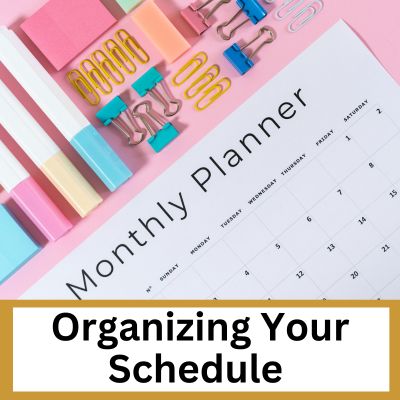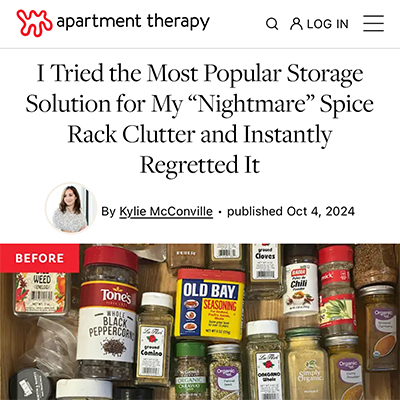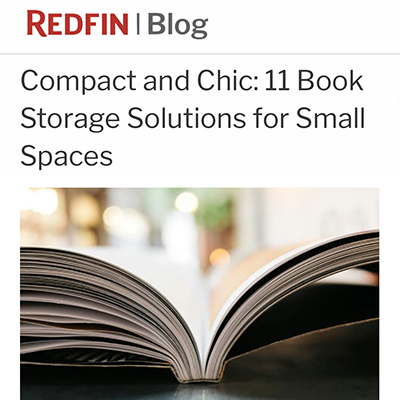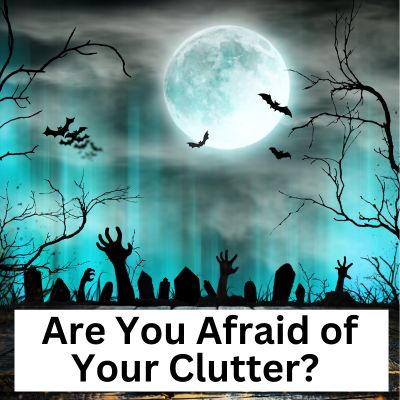Organizing Your Schedule

Are you over scheduled or over committed? Do you need someone to help hold you accountable, or are you better off self-regulating? How do you know what to do when? Do you like a more intuitive approach, or do you like more structure? When working on long term projects, how do you pace yourself? Do you have your calendar on your phone? Do you share it with anyone? Do you use a paper calendar? I know anyone with ADHD has gone through many different types of planners and calendars to find what works for them. What elements are important for you to have in a calendar? Time management can be really hard for people, especially with people with ADHD. If you want to improve how you schedule your time, keep reading!
- Organizing your schedule is a careful balance of managing your energy. Fill your time with activities that give you energy, rather than take it away. Examples of energy giving activities are eating nourishing food, staying hydrated, getting plenty of fresh air, self-care activities, and speaking kindly to yourself. Examples of energy depleting activities are eating junk food, drinking alcohol, being too sedentary, overworking, and surrounding yourself with people who bring you down. Figure out which activities give you energy, and which ones take it away, and act accordingly.
- When you’re trying to be more productive with your time, don’t get too overly ambitious. The best way to create sustainable habits is to make small changes over time. Develop a strong integrity with yourself only saying that you will do things that you know you will actually do. If you find yourself saying that you will do all the things, and then you don’t do them, you are out of integrity with yourself. Be very careful about what you commit to doing. When you get into the habit of doing what you say you will do, you will have an easier time following through when you commit to a bigger goal. My favorite book on habit change is Atomic Habits.
- Learn about the Eisenhower Matrix. This is a system with four quadrants:
-Urgent and Important: “putting out fires” (ex: hitting pressing deadlines last minute, going to the emergency room for a condition that you’ve ignored, helping take care of a friend in an urgent situation).
-Important But Not Urgent: “slow and steady” (ex: continuing to work on long term projects that are important to you, doing regular self-care activities that improve your health, maintaining mutually beneficial, balanced friendships).
-Urgent But Not Important: “interruptions” (ex: spam phone calls, getting sidetracked by going down the rabbit hole of a tedious project that’s not important, helping a perpetually dramatic “friend” deal with their latest crisis).
-Not Important, Not Urgent: “vegging out” (ex: watching TV, doing a puzzle, reading for entertainment, casual conversation at the grocery store).
Most people think that they should spend the majority of their time in the “urgent and important” quadrant, but then get burned out, and end up spending all their extra time in the “not important, not urgent” quadrant. If you want to be the most productive, aim to spend the majority of your time in the “important but not urgent” quadrant so that you can stay on top of things that will bring meaning to your life. It’s also a good idea to spend time in the “not important, not urgent” quadrant, because it can be quite restorative. Just don’t let yourself get too sucked in!
- If you don’t use any type of calendar, start using one. I prefer to use a very simple monthly view paper calendar in conjunction with the calendar on my iPhone. I like the ease of both types of view (paper and digital), but this method requires diligence with making sure information is entered in correctly in both places. There are so many types of planners on the market! You may need to try a few different styles to find what works for you.
- Are there any activities, meetings or responsibilities that you can let go of? It’s ok to say no to things, but it can be hard. Learning to say no is a communication skill which can be improved, but it does take discipline and confidence. I have some coach friends who are exceptionally good at teaching people to say no. If you’d like an introduction, let me know!
- If you were to add one activity to your calendar that would be the biggest needle mover in your health or home organization, what would it be? For example, would drinking half your weight (in ounces) of water help you avoid caffeinated drinks so that you could get to bed earlier and have more energy for organizing your home the next day? Or would going for a daily walk help you regulate your stress so that you’re able to make decisions about what to keep and what to let go of? Your home is often a reflection of what’s going on in your body, so improvements you make to your health will usually have a positive effect on your environment. However, don’t take it to extremes if you’re not ready for all the extra work. Doing more workouts will take time and produce more dirty laundry. Cooking healthy food will make for more dishes to clean. Make sure you don’t over-do it in one area. Shoot for bringing more balance to your life.
- Have you tried and tried to manage your schedule, and you’re still having issues? Check out Gretchen Rubin’s book, The Four Tendencies. She talks about the four main ways people like to meet expectations: The upholder (good at meeting expectations from self and for others), the obliger (resists expectations from self but good at meeting expectations from others), the rebel (resists both expectations from self and others), and the questioner (resists expectations from others but can meet expectations for self). When you can identify how you like to meet expectations, you can set up ways to support yourself. The rebel is the trickiest one, but it is possible!
Home Assignment
Do one thing today to improve how you manage your time.
Life Assignment
Do you have a significant other? How do you show appreciation for him or her? Is there anything that needs to get talked about that has come to the surface? What fun things do you like to do together? How can you strengthen your relationship? Or is it time to call it quits? Give some attention to this important person in your life. If you don’t have a significant other, do you need to do any release work from your previous partner? Do you need to burn anything (literally or metaphorically) to move on? Are you ready to let someone else into your life? What qualities are you looking for in a partner? Create a vision board, or a list of attributes you are looking for. Do you meet your own expectations of what you are looking for in a partner?

Posted By Jean Prominski, Certified Professional Organizer
- Follow me on Instagram @seattlesparkle
- Join my Facebook Group, Declutter and Organize with Seattle Sparkle.
- Ready to book a consultation? Complete this form.
- Download my free 5 week journal The Seattle Sparkle Method to Get Organized and Stay Organized
- Check out my media exposure: Seattle Sparkle in the Media
- For artwork to energize your home, order through jeanprominski.com.




